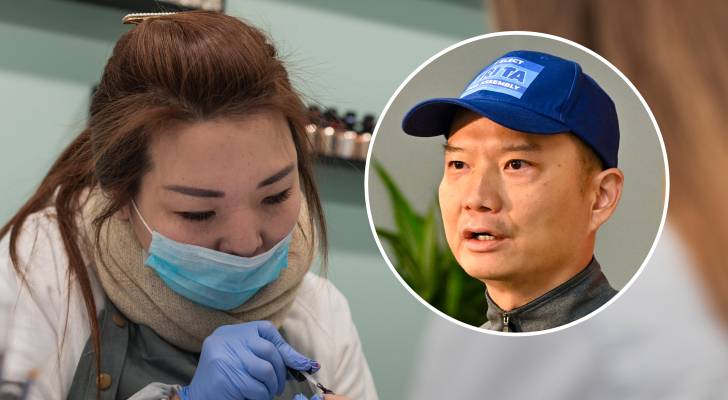
SANTA ANA, CA – A new federal lawsuit has emerged, challenging California’s labor regulations and placing Vietnamese-American nail technicians at the forefront of the legal battle.
Filed in the U.S. District Court for the Central District of California, the lawsuit contends that Assembly Bill 5, enacted in 2020, unlawfully deprived nail technicians of their right to operate as independent contractors, contravening the 14th Amendment’s equal protection clause.
Immediate Impact on the Nail Salon Industry
The legislation has significantly disrupted an industry predominantly composed of Vietnamese immigrants, generating approximately $3 billion annually, according to the Pro Nails Association. California Assemblyman Tri Ta, representing Little Saigon, has been inundated with concerns from constituents.
“Their lives have turned upside down overnight,” Ta stated at a press conference. “It is not just unfair, it is discrimination.”
While some criticize the law for destabilizing their livelihoods, labor advocates argue it is a necessary measure to ensure fair wages for a workforce often overlooked and underpaid.
Key Details Emerge from Assembly Bill 5
Enacted in 2019, Assembly Bill 5 redefined worker classification following a 2018 Supreme Court ruling against Dynamex Operations West. The law established criteria for determining independent contractor status, requiring workers to:
- Operate independently
- Perform tasks outside the company’s core business
- Offer services to other clients
If these conditions are unmet, workers must be classified as employees, granting them protections such as minimum wage, overtime pay, and unemployment insurance.
Industry Response and Financial Strain
For nail salon owners, the transition to employee classification presents financial challenges. An Tran, owner of two Happy Nails & Spa franchises, is among those taking legal action, arguing that the law burdens salon operations.
“We don’t have customers all the time. That’s going to cost us a lot more to pay them for the downtime when they don’t have any customers,” Tran told the LA Times.
By the Numbers: A Community Under Pressure
The lawsuit highlights the plight of the Vietnamese community in the nail salon industry. According to the lawsuit, over 82% of California nail technicians are Vietnamese, with approximately 85% being women.
Attorney Scott Wellman, representing the plaintiffs, emphasized the discrimination faced by Vietnamese American manicurists under California labor laws.
“Vietnamese American manicurists have faced blatant discrimination under California’s labor laws, stripped of the same rights and freedoms afforded to others in their industry,” Wellman stated to KTLA 5.
Health and Safety Concerns
Worker advocates point to broader exploitation within the industry. A UCLA Labor Center report revealed that nearly 80% of nail salon workers earn wages at or below two-thirds of the median full-time wage. Concerns extend beyond wages to health and safety, as illustrated by former nail technician Pabitra Dash’s personal experiences.
“(My doctor) said, ‘It’s really good for your health and your baby,’” Dash shared with NBC News, after leaving the industry and successfully carrying her pregnancy to term.
What Comes Next for California’s Nail Salons
The federal lawsuit has positioned nail salons as a focal point in California’s ongoing effort to balance gig work with fair labor protections. Salon owners express apprehension about the implications of stricter regulations, while technicians fear losing their employee rights.
The outcome of this legal challenge could set a precedent for other industries grappling with similar classification issues. As the case unfolds, stakeholders on both sides await a resolution that could reshape the landscape of labor rights in California.






